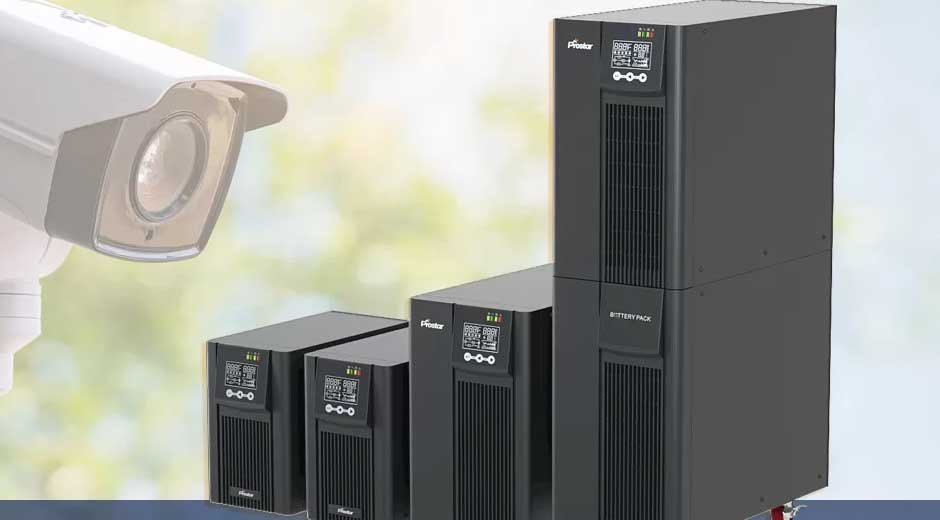In today’s fast-paced and digitally connected world, businesses and industries require an uninterrupted and stable connection to the electrical grid. Without it, even a brief power disruption can lead to operational halts, data loss, and financial losses. This is where uninterruptible power supply (UPS) systems come into play, providing a reliable solution to maintain power flow and protect critical equipment. Among the various types of UPS systems, the 3 phase UPS is particularly crucial for organisations with high power demands.
What is a 3 Phase UPS System?
A 3 phase UPS system is a sophisticated power backup solution designed to provide uninterrupted power to large-scale operations with high load capacities. Unlike single-phase UPS systems, which are suitable for smaller operations, the 3 phase UPS is engineered for data centres, industrial facilities, and other critical environments that require robust power support.
The defining feature of a 3 phase UPS system is its use of three alternating currents (AC) that are 120 degrees out of phase with each other. This configuration ensures a more balanced power distribution, reducing the risk of voltage imbalances and power loss. In a three-phase system, the load is spread across three phases, meaning that the system can support more substantial power loads compared to single-phase systems.
How Does a 3 Phase UPS Work?
A 3 phase UPS system operates by converting incoming AC power to direct current (DC) via a rectifier. This DC power is then stored in the UPS’s batteries, ready to be used during a power outage or disruption. When a power failure occurs, the stored DC power is converted back to AC using an inverter, ensuring that the connected equipment continues to receive power.
Key components of a 3 phase UPS system include:
- Rectifier/Charger:Converts incoming AC power to DC power for storage in the battery pack.
- Battery Pack:Stores the DC power, providing backup power during outages.
- Inverter:Converts stored DC power back into AC power when required.
- Static Bypass Switch:Allows the system to bypass the UPS in case of maintenance or failure, ensuring a continuous flow of power to critical equipment.
This seamless interaction between components ensures that the 3 phase UPS system can provide uninterrupted power, even in the event of a power outage or grid failure.
Benefits of a 3 Phase UPS System
Higher Power Capacity
One of the most significant advantages of a 3 phase UPS system is its ability to support higher power loads. This makes it ideal for large-scale operations such as data centres, industrial plants, and healthcare facilities that rely on continuous power to protect critical devices and operations. The higher capacity allows for more devices to be supported simultaneously, making it a more efficient solution for businesses with substantial power needs.
Improved Efficiency and Reduced Energy Loss
A 3 phase UPS system offers greater efficiency in power conversion and distribution compared to single-phase systems. The balanced load distribution across three phases minimises energy losses and heat generation, making the system more cost-effective to operate. This is particularly beneficial for commercial-scale facilities looking to reduce their overall energy footprint while maintaining a reliable power supply.
Enhanced Reliability and Redundancy
3 phase UPS systems are designed with redundancy in mind. In the event of a failure in one of the phases, the remaining two phases continue to provide power, ensuring that critical operations are not disrupted. This level of redundancy is essential for industries where power outages can lead to severe consequences, such as data loss or operational downtime.
Space-Saving Compact Design
Despite their high power capacity, modern 3 phase UPS systems are designed to be compact, making them ideal for businesses looking to optimise their available space. By consuming less physical space, these systems allow organisations to maximise the use of their facilities while still providing the necessary power backup.
Scalability
A key feature of 3 phase UPS systems is their scalability. As businesses grow and their power needs increase, these systems can be scaled to provide additional power backup capacity. This flexibility makes them a future-proof investment for organisations planning to expand their operations in the coming years.
Applications of 3 Phase UPS Systems
Data Centres
Data centres are one of the primary users of 3 phase UPS systems due to their need for continuous power to protect valuable data and ensure uninterrupted server functionality. Power outages in data centres can result in data loss, downtime, and significant financial losses. A 3 phase UPS system ensures that critical equipment remains operational, even during power failures, safeguarding both the data and the infrastructure.
Industrial and Manufacturing Plants
For industrial and manufacturing plants, even a brief power interruption can lead to operational delays and substantial financial losses. These facilities often operate heavy machinery and equipment that must run continuously to maintain productivity. A 3 phase UPS system provides the necessary backup power to prevent costly interruptions and ensure that operations can continue without disruption.
Healthcare Facilities
Hospitals and healthcare facilities rely on a constant power supply to operate essential medical devices, such as life-support systems and diagnostic equipment. A power failure in a healthcare setting can have life-threatening consequences. A 3 phase UPS system ensures that critical medical equipment remains operational during power outages, safeguarding patient care and safety.
IT Infrastructure
In today’s digital world, IT infrastructure is the backbone of many organisations. From telecommunications companies to financial institutions, uninterrupted power is essential for maintaining network operations, data processing, and communication services. A 3 phase UPS system provides the necessary power backup to protect IT infrastructure from power disruptions, ensuring business continuity.
Choosing the Right 3 Phase UPS System
When selecting a 3 phase UPS system, several factors must be considered to ensure that the system meets your organisation’s specific power needs. These factors include:
Load Capacity
The load capacity of a UPS system is one of the most critical factors to consider. The system must be able to support the total power requirements of your organisation’s critical equipment. It’s essential to assess the power demands of your current operations and anticipate any future growth to ensure that the UPS system can accommodate your needs.
Efficiency
High-efficiency UPS systems not only reduce energy consumption but also generate less heat, which can help lower cooling costs. When selecting a UPS system, look for one with high energy efficiency ratings to maximise cost savings and reduce your organisation’s environmental impact.
Battery Life and Maintenance
The lifespan of the UPS batteries is another crucial consideration. Long-lasting batteries with low maintenance requirements can help reduce operational costs and ensure that your system remains reliable over time. Regular battery maintenance is essential to prevent unexpected failures and ensure that the UPS system can provide power when needed.
Redundancy and Fault Tolerance
For organisations where uninterrupted power is critical, redundancy and fault tolerance are essential features to look for in a UPS system. Redundancy ensures that power will continue to be delivered even if one component fails, while fault tolerance allows the system to recover quickly from any issues.
Scalability
As your organisation grows, your power needs may increase. Choosing a scalable UPS system allows you to add capacity as needed without replacing the entire system. This flexibility is particularly important for businesses that anticipate future expansion.
Vendor Expertise
Working with an experienced vendor or consultant can help you select the right 3 phase UPS system for your specific needs. A knowledgeable vendor can provide valuable insights into system design, installation, and maintenance, ensuring that your organisation gets the most out of its investment.
Advanced Technologies in 3 Phase UPS Systems
As technology advances, so do UPS systems. Modern 3 phase UPS systems incorporate a range of advanced technologies that enhance performance, efficiency, and flexibility.
Smart Monitoring and Remote Management
Many modern 3 phase UPS systems now include smart monitoring and remote management capabilities. These features allow facility managers to monitor system performance in real-time, track energy consumption, and detect potential issues before they lead to downtime. Remote management also enables proactive maintenance, reducing the risk of unexpected failures.
Modular UPS Systems
Modular UPS systems are becoming increasingly popular due to their scalability and ease of maintenance. A modular system consists of multiple power modules that can be added or removed as needed, providing greater flexibility and allowing businesses to scale their power backup solutions in line with their evolving needs.
Energy Efficiency and Eco-Friendly Designs
With growing concerns about environmental sustainability, many 3 phase UPS systems are now designed with energy efficiency in mind. Features such as eco-mode allow the system to optimise energy use, reducing overall energy consumption and lowering operational costs. Additionally, manufacturers are increasingly focusing on reducing the use of hazardous materials in UPS components, aligning with global environmental regulations.
Future Trends in 3 Phase UPS Systems
As the demand for reliable power solutions continues to grow, several trends are shaping the future of 3 phase UPS systems.
Integration of Renewable Energy Sources
As renewable energy becomes more accessible, future 3 phase UPS systems may incorporate renewable sources such as solar or wind power. This integration would provide businesses with greater flexibility and sustainability, reducing their reliance on traditional power grids and lowering their carbon footprint.
Artificial Intelligence and Predictive Maintenance
The use of artificial intelligence (AI) and machine learning in UPS systems is expected to increase in the coming years. AI-powered systems can analyse historical data to predict power consumption patterns, optimise load distribution, and identify potential failures before they occur. This level of predictive maintenance will further enhance the reliability and efficiency of 3 phase UPS systems.
Conclusion
In today’s fast-paced, technology-driven world, reliable power is more important than ever. A 3 phase UPS system offers the capacity, efficiency, and reliability needed to protect critical operations from power disruptions. Whether it’s a data centre, industrial plant, healthcare facility, or IT infrastructure, a well-designed 3 phase UPS system ensures continuous power availability, safeguarding equipment and operations from costly downtime.
By selecting the right 3 phase UPS system, businesses can future-proof their operations, ensuring that they remain resilient in the face of power outages. With advancements in technology, 3 phase UPS systems will continue to evolve, offering even greater efficiency, flexibility, and sustainability to meet the demands of modern businesses.



